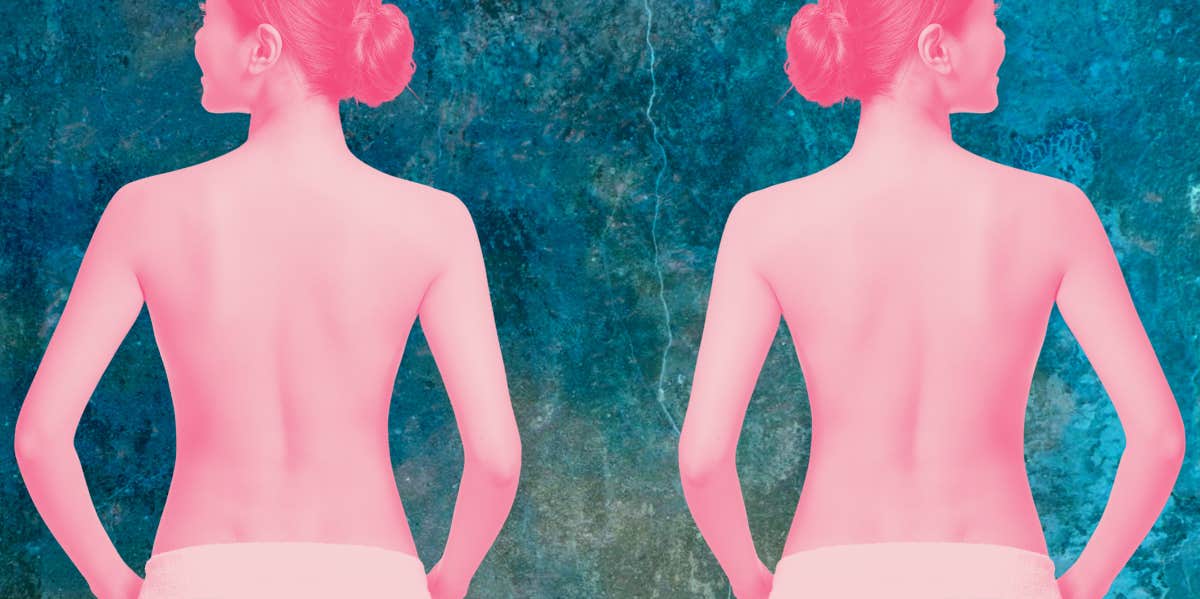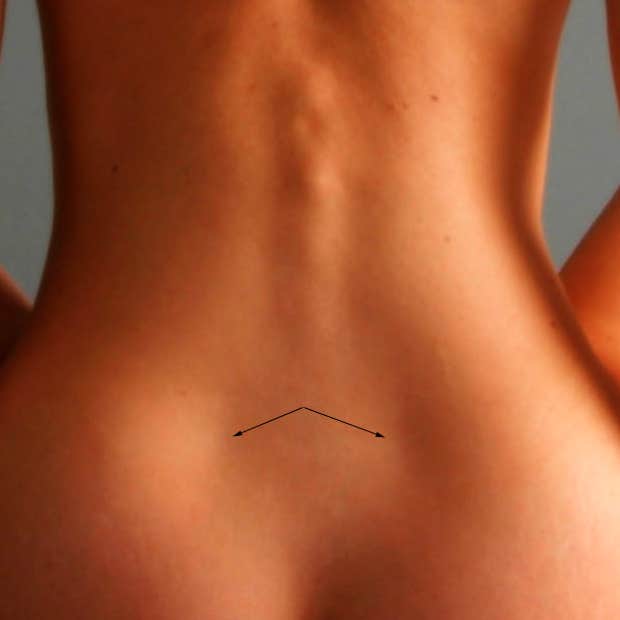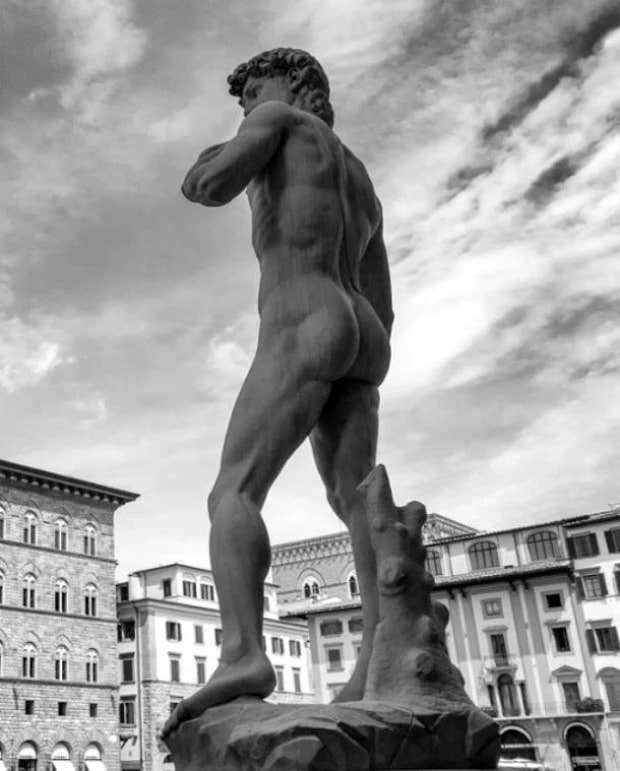What It Means If You Have Back Dimples, AKA 'Dimples Of Venus'
Lower back dimples aren't found on everyone, so you're pretty special if you have them.
 aslysun / Shutterstock
aslysun / Shutterstock When it comes to beauty, we've long allowed men to set the standards for what's hot and what's not, including dimples (and lower back dimples in particular). Sometimes these standards are right, but sometimes they're wrong. Very, very wrong.
Sir Mix-a-Lot who popularized the love of big butts in the 1990s and helped make women all over the globe proud of the buns they brandished, but he was far from being the first man to think, "This particular trait: that's what's up."
In fact, it was 16th century Renaissance master Michelangelo who's art first seemed to say, "Daaaayum, girl. Back that up!" Only he wasn't talking about butts specifically, but rather about the lower back dimples that sit just above the junk in some people's trunks.
Back dimples are two concave marks located directly above the sacroiliac joints (i.e., where the sacrum meets the pelvis, or directly above the buttocks) on some people's lower backs.
These dimples aren't to be confused with a sacral dimple, which is a single mark located directly above the buttocks crease, and most usually found in infants and young children.
Back dimples are more commonly found on women than on men, but people of any gender can be blessed with this highly attractive feature.
What causes sacral or back dimples?
Lower back dimples aren't found on everyone, of course. Only 3-8% of people are born with them.
Their cause is a simple matter of genetics, just like having a cute chin dimple or dimples when you smile. More specifically, their appearance is caused by short ligaments stretching between the posterior superior iliac spine and the skin.
 Photo credit: Zaheer12a, CC BY-SA 3.0, via Wikimedia Commons
Photo credit: Zaheer12a, CC BY-SA 3.0, via Wikimedia Commons
Why are back dimples called "Dimples of Venus"?
Michelangelo is said to have christened them "dimples of Venus," aka Venusian dimples after Venus, the Roman goddess of beauty, love, sex, and fertility, when he spotted them on women.
Being pretty equal opportunity when it come to hot bodies (we've all seen his statue of David), he's also said to have called them "dimples of Apollo" when found on a man.
 Photo: MustangJoe on Pixabay
Photo: MustangJoe on Pixabay
Why are back dimples considered attractive and attributed to sexual prowess?
Some people believe back dimples are a sign of a healthy body and good circulation. Because of this, it's also been said that people with lower back dimples find it easier to orgasm, which may be where the whole "back dimples mean you're good in bed" idea came from.
Unfortunately, there's no scientific evidence behind these claims, but we're all for going with the placebo effect on this one!
Owners of dimples of Venus are also thought to be great seducers. This could be because the look of them makes you appear more attractive, or the connection with more pleasure from sex.
Again, there is literally no science to back this up, but I can personally say I would not kick a dude with dimples of Apollo out of bed for eating oyster crackers, and that's kind of like science, so there you go.
How can you get back dimples if you don't have them?
Some people born without these dimples go to extremes to get this look, undergoing cosmetic surgery to make their top-bottoms seem sexier.
Weight loss may also make these dimples visible on people who previously thought they were born lower back dimple-free. But does having back dimples mean you're fat? The answer is a resounding, "No!"
So, for Pete's sake, don't lose weight just to see if you get butt dimples.
Remember, whether you have these dimples or not doesn't mean you're fat, nor does it mean you need to lose weight in order to show them off. You're already sexy as you are. (That said, these could be the bitter ravings of a woman with no butt dimples of which to speak.)
Rebecca Jane Stokes is a writer, podcaster and former Senior Editor of Pop Culture at Newsweek.

